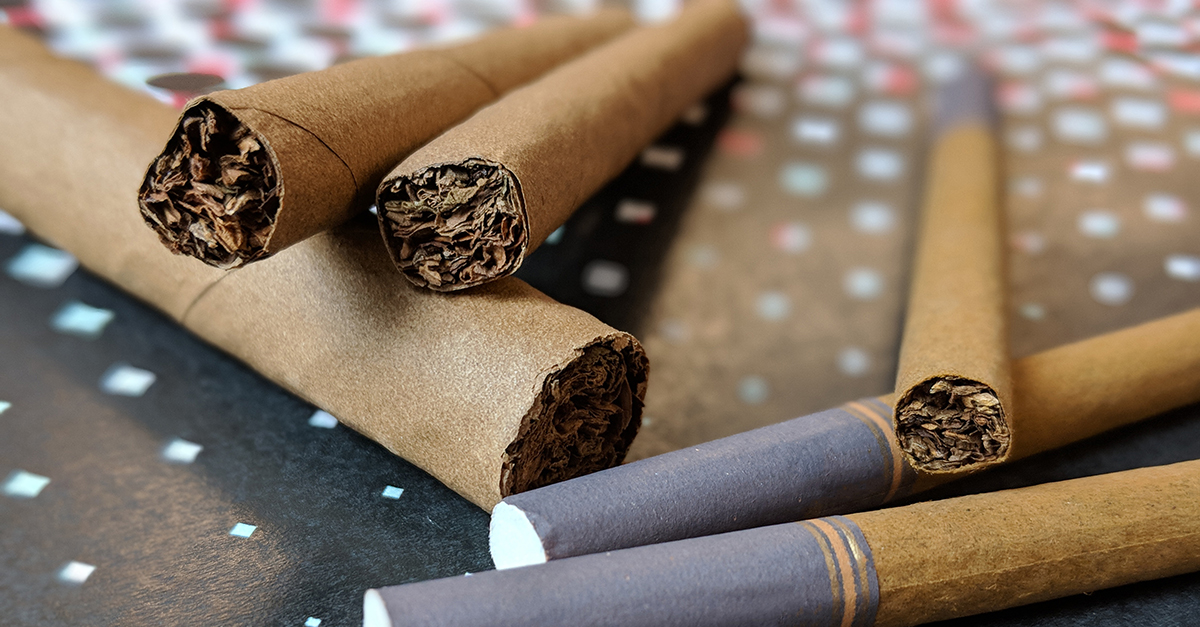Vaping more than triples odds that young people will use little cigars and other combustible tobacco products
Young people who used JUUL or other e-cigarettes had more than triple the odds of going on to use cigars, little cigars, or cigarillos within two years compared to those who had never vaped, according to Truth Initiative research that is the first to link e-cigarette and future cigar use.
The research, published in the journal Drug & Alcohol Dependence, also found that current e-cigarette users had more than three times greater odds of initiating use of flavored cigars, little cigars, or cigarillos (CLCCs) compared to non-flavored products, indicating that flavors play a key role in transitioning users from e-cigarettes to combustible tobacco products. The study underscores the need for the Food and Drug Administration to enact its recent proposed ban on all flavored cigar products and menthol cigarettes, the only flavored combustible cigarette still allowed on the market.

The trajectory from e-cigarettes to combustible tobacco
Sales and consumption of CLCCs, which present the same health risks as cigarettes and are available in fruity, sweet, and alcohol flavors, have been on the rise. They are sold as single units or in multipacks, making them a cheaper option for price-sensitive populations like youth.
Researchers recruited more than 5,000 young people ages 15-21 who had never used CLCCs as of 2017, and then looked for e-cigarette use in the group by 2018. They analyzed whether e-cigarette users had greater odds of using CCLCs from 2018 to late 2019.
Among youth 15-21 who had never used CLCCs, the odds of initiating CLCC use were more than three times greater for those who used e-cigarettes, compared to those who had never used an e-cigarette.
The research follows previous studies that have linked e-cigarette use to future combustible cigarette use. For example, according to a 2020 study, young people in the U.S. who had ever used e-cigarettes in 2018 had 7 times higher odds of ever using cigarettes, compared with those who had never used an e-cigarette.
E-cigarettes to flavored cigars: the role of flavors
Findings suggest that flavors in e-cigarettes are driving young people who vape to find other flavored tobacco products. Almost all -- 97% -- of youth who vape use flavored e-cigarettes.
In the study, current users of e-cigarettes other than JUUL had 3.06 times higher odds of starting to use flavored CLCCs compared to non-flavored CLCCs. Odds were similar for those who exclusively used JUUL. Researchers found that cigarette use was also associated with CLCC initiation and use, but saw no significant variation between flavored and unflavored CLCC use.
The authors write, “It is not surprising that flavor profiles may have played an important role in the association between e-cigarette use and future CLCC use.” Past research has shown that flavored CLCCs mask the taste of tobacco and reduce irritation during inhalation, making the product more appealing to youth and young adults.
Black respondents initiate CLCC use at higher rates than white respondents
Non-Hispanic Black respondents had 1.68 times higher odds of initiating CLCC use from 2018 to late 2019, compared to white non-Hispanic respondents, indicating that race/ethnicity are statistically significant predictors of overall CLCC initiation. This group also had 1.23 higher odds of initiating flavored CCLCs use compared to non-flavored CLCCs – findings that are unsurprising given Big Tobacco’s decades of racial targeting.
In April 2021, the FDA announced that it is working on standards that would ban menthol cigarettes and all flavored cigar products except premium cigars within the next year. The current study’s findings that young people and Black respondents specifically were more likely to go on to use flavored CLCCs supports immediate enforcement of the FDA’s ban on flavored cigar products.
The authors write: “Given their well-documented appeal to youth, all flavors, including menthol, should be eliminated from little cigars, cigarillos and other cigar products.”
More in traditional tobacco products
Want support quitting? Join EX Program
By clicking JOIN, you agree to the Terms, Text Message Terms and Privacy Policy.
Msg&Data rates may apply; msgs are automated.



